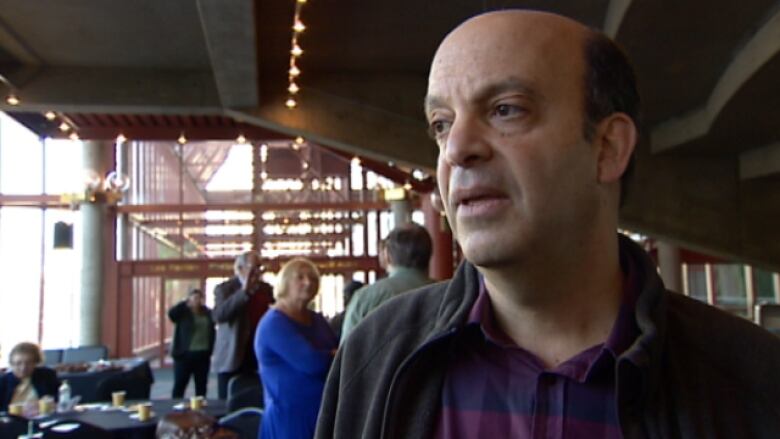Edmonton plan to end homelessness hits bumps
Halfway through ambitious 10-year target, numbers grow, housing dwindles

As Edmonton passes the halfway point in its 10-year plan to end homelessness, there is growing doubt about whether the city can achieve the target.
"Ultimately, a lot of things have to come together for us to actually meet the goal," Mayor Don Iveson told media Saturday at a homelessness forum at the Citadel Theatre.
Edmonton's mostrecent homeless count, in October 2012, identified 2,174 people as homeless down almost a third from the 3,079 identified in 2008.
However, many people at the forum said the numbers are now growing.

"That project didn't work," said Iveson. "But it opened up this conversation we're having today, which is positive."
Susan McGee, CEO of Homeward Trust Edmonton, the organization created to implement the end homelessness plan, said if neighbourhood groups are concerned about social housing, they need to be part of the solutions.
"If you are concerned or feel that it is something that you want somebody to do something about, be that someone and work with us."
Housing panel proposed
David Berger, deputy executive director of Boyle Street Community Services, proposed that a panel of "independent" Edmontonians be created to examine future social housing projects and make recommendations to the city.
Berger said while more housing is important, more workers are needed to help people stay in that housing. Since the end homelessness plan was announced in 2009, more than 2,600 formerly homeless people have been housed in Edmonton. But Berger said the program cannot take new clients because existing ones need so much help.
"If we let them go, they will become homeless again. So, as we hold onto them, we can't bring new people in."
Rentals in short supply
Berger said another difficultyis the city's falling vacancy rate. The Canada Mortgage and Housing Corporations most recent rental report in October 2013 said only 1.4 per cent of rentalunits were vacant, down from 1.7 per cent from a year earlier.
Boyle Street executive director Julian Daly said shelters and warming vans are at or over capacity as Edmonton continues to attract people looking for work. Around half the homeless encountered by his workers have arrived in the city in the last six months.
"Some of those people that are homeless right now, they can actually afford housing, or they could potentially could, but even if people can afford to get in somewhere, they can't always find a place."
Homeless man questions plan
The city's end homelessness plan received a frosty review from Gary Fyfe.
CBC News spoke to him on a street outside the forum.
I'm sure each and every one of us need a safe place to live.- Homeless man Gary Fyfe
He said the Hope Mission, where he currently stays, is very busy and tempers are running high with the long lineups. He said it's hard to find a safe place to stay, away from fights and people struggling with addictions.
"That's the key word is being safe. I'm sure each and every one of us need a safe place to live."
In the short term, Fyfe wants more shelter space to be created and security guards to be present at shelters. In the longer term, he wants agencies that receive Housing First funding to be audited, to make sure they are using the money fairly.
"I just really hope the government can help the Mission and homeless more."












_(720p).jpg)


 OFFICIAL HD MUSIC VIDEO.jpg)
.jpg)



























































































